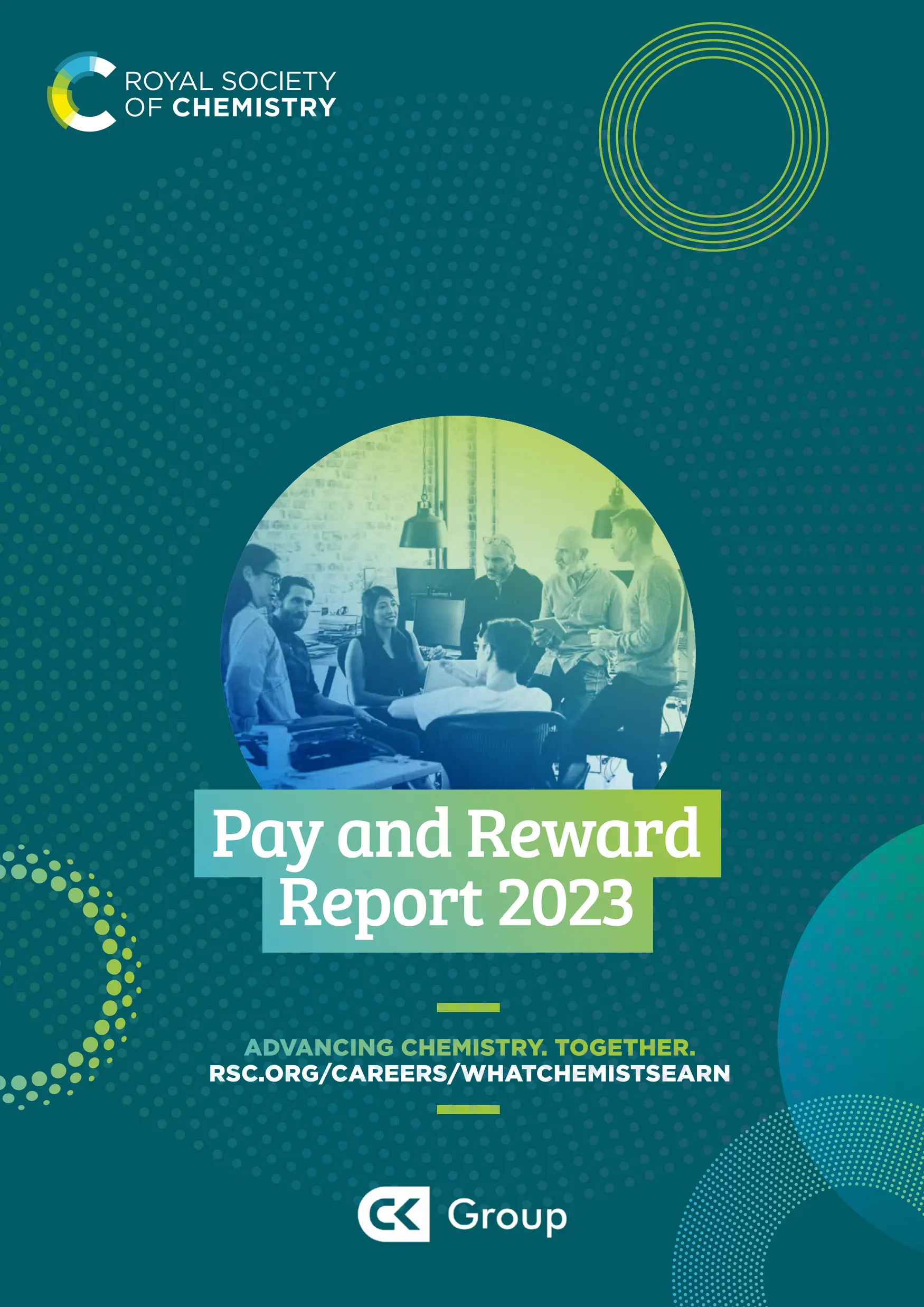What do chemists earn
Our members’ Pay and Reward Report gives you the facts to support your next career decision.

Our 2023 Pay and Reward Survey is the 45th report in a series of remuneration surveys of members carried out by the Royal Society of Chemistry since 1919. The survey is carried out every two years and provides a highly useful resource for the RSC, our members, and the wider community.
On this page
78%
say they feel able to be themselves at work
40%
say their financial situation is worse than it was 12 months ago
7.1%
increase in median salary to £50,000 since 2021
 Download the report
Download the report

The 2023 survey received 4,833 responses. It collected data about:
- salaries and benefits
- pay parity issues
- impact of and challenges related to the increased cost of living
- the state of well-being and belonging in the chemical sciences community
- information about what is important to chemical scientists, to support employer recruitment and retention plans
The survey results will inform policy decisions including new major pieces of research, drive progress within our community, and enable the RSC to support our members on an individual level better.
2023 survey findings
Watch the Pay and Reward Report 2023 video
The median salary increased but pay disparities remain
The median salary from all employed respondents was £50,000, up from £46,700 in 2021. But with inflation and the rising cost of living, the real-term impact is being felt: 40% said their financial situation is worse than it was a year ago.
Pay disparities remain, across multiple demographics. Women are paid less than men and disabled people are paid less than non-disabled people. For UK respondents, people from minoritised racial groups are paid less than white people.
The chemical sciences still need to address equality issues
To thrive and overcome new challenges, the chemical sciences must attract, develop and retain a diverse range of people. We are working hard to support our community and highlight examples in the report. The Pay and Reward survey data will feed into our evidence-driven approach to drive action on inclusive access and progression within the chemical sciences.
Women, disabled people, those from minoritised racial backgrounds, LGBT+ people and people with caring responsibilities continue to experience discrimination and bias. In addition to pay disparities, inequalities are shown to impact people’s wellbeing, belonging, career progression and skills development.
The most sought-after skills for career progression
The top skills that chemical scientists are looking to develop have stayed consistent: leadership and networking. Strategic planning is also in the top three this year. People who are earlier in their careers are more likely to say that developing specialist digital skills (such as AI and machine learning) is a priority, compared to those at more established career stages.
Impact of cost of living rises and state of wellbeing
Just 18% of respondents received a pay rise in line with or above inflation in the last 12 months. The increased cost of living is impacting wellbeing across the chemical sciences, with women and younger people significantly more likely to report negative wellbeing.
If you are struggling with the cost of living, the Chemists’ Community Fund is here for you. Our friendly, expert team can give you support tailored to your situation, in complete confidence.
Pay and reward through the ages
Members can delve into our digital archives to find out how employment in the chemical sciences has changed over the last 100 years. What did a chemical scientist earn in 1919? What were the most lucrative industries to work in? When was the best time to be a chemist?
Get free access to the report
You can purchase and download the report for £250 - please contact our Career Management team. Alternatively, get free access as part of a comprehensive package of benefits when you become a Royal Society of Chemistry member. Join for as little as £20.
As a Royal Society of Chemistry member, you’ll become part of a diverse global community of over 50,000 people who are working to create a better world. We’ll give you resources, support and connections to help you stay at the forefront of your profession.
When you become a member, you can help us influence challenges faced in the environment, education systems, inclusion and diversity, and other areas of chemical science.
To purchase the report, please contact our careers team.
Contact our careers team
We're here to help. Get in touch with any questions about your chemistry career or the support we can provide.